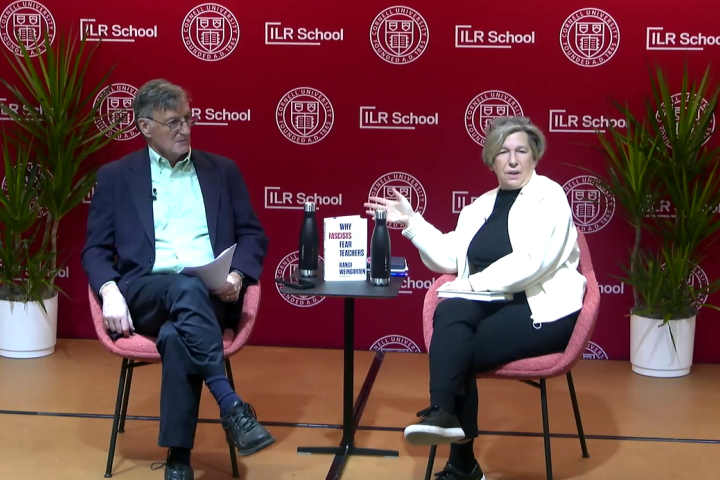
Impacts of COVID-19 on Arbitration Procedures
Endangering all of our lives, stripping us of many opportunities, and changing our way of social interaction, the deadly COVID-19 pandemic has brought many negative impacts to everyone’s daily lives. While these negative effects are serious and harmful, it can be helpful to focus on the positive outcomes that have developed as a result of this new virtual workspace, specifically in arbitrations. The pandemic transformed the entire arbitration process - and in a lot of ways, for the better. Despite all the negative consequences COVID-19 has had on legal work, incomes, and procedures, it is crucial to focus on the positive impacts it has had on law procedures, specifically arbitration. COVID-19 has resulted in the increased use of teleconferencing in arbitration, resulting in shorter and more cost-effective virtual arbitration proceedings. Another added benefit is the tendency for arbitrators in the virtual environment to focus on the evidence. These positive outcomes were forced upon litigants due to the unprecedented social distancing guidelines, and surprisingly helpful to all parties involved.
The increased use of teleconferencing has proved to be particularly beneficial towards international arbitration. When proceedings were held in person, it was a constant hassle getting all of the parties involved from across the globe in the same room. In the times of COVID-19, all non-essential work became virtual out of necessity. The ability of all parties across the world to log onto a secured network and solve a conflict with no travel costs or travel time was surprisingly effective. The increased use of teleconferencing has “helped minimize unnecessary delays” that would have been present during in-person conferences. Working remotely definitely has its challenges with connection errors and time zone conflicts, however, the increased use of teleconferencing has proved to be more time-effective and cost-effective in the long run.
As a result of the remote conferences, proceeding times have been cut much shorter. Before the pandemic, international arbitration was facing challenges regarding “rising costs and procedural delays”. But by transitioning to a completely remote environment, the length of the process has been dramatically reduced. According to Guillet and Goins, “the forced digitization in the way we conduct international arbitrations may be the push to bring online dispute resolution (ODR) to commercial arbitration generally”. If virtual arbitration proceedings continue to display significant benefits, then permanently moving towards teleconferencing may be a breakthrough in tackling complaints regarding in-person international arbitration.
In addition to shorter meetings and beneficial virtual conferences, COVID-19 has forced arbitration proceedings, specifically international ones, to become more cost effective. In light of travel restrictions and social distancing guidelines, almost all travelling has been dismantled. Eliminating traveling costs such as plane tickets, a hotel room, and food, as well as the opportunity cost of attending the meeting, teleconferencing has proved to be much more cost-effective than in-person proceedings. Once again, this pandemic has solved another common complaint from before the COVID-19 era: the issue of arbitration being too expensive. The simplicity of signing onto a virtual conference rather than the intricacies of planning an entire international trip have proved to be extremely cost-effective to all parties involved in traveling.
The development of virtual proceedings will likely result in the arbitration panel’s better assessment of evidence. During in-person proceedings, there is more potential for the panel to judge a case based on their unconscious bias towards a witness. According to Guillet and Goins, “the visual, verbal and behavioral clues used to categorize others based on age, gender or social background might be muted through online witness testimony”. As arbitration has entered the world of teleconferencing, it is more likely that the arbitrator will focus on the substance of the case at hand. As the arbitrator evaluates the evidence through a virtual platform, one is much less likely to focus on the individual’s physical characteristics on the screen. Meanwhile, when arbitration proceedings occur in person, there is a greater level of unconscious bias that could take place and could encourage an affinity towards one party.
While COVID-19 has forced most labor forces to transition to virtual work, in the world of arbitration, there are many reasons why this could be seen as a positive outcome. The time and cost effectiveness of these new remote arbitration procedures have solved common issues that have existed even before the pandemic. Could virtual arbitration procedures permanently become the new-norm?
References
Guillet, Elena, and Adrianne Goins. “The Advantages of Arbitration During the Coronavirus Pandemic: Insights: Vinson & Elkins LLP.” Vinson & Elkins, October 19, 2020.
Garrie, Daniel. “The COVID-19 Impact on Arbitration and How To Navigate Virtual Proceedings.” Legaltech News, November 11, 2020.
Guillet, Elena, and Adrianne Goins. “Challenges and Opportunities of Virtual Hearings in International Arbitration: Insights: Vinson & Elkins LLP.” Vinson & Elkins, October 14, 2020.

By Mari Maloul (ILR '24)
My name is Mari Maloul and I am in the class of 2024 with a major in Industrial and Labor Relations. I have always been interested in solving problems and the methods that take place in conflict resolution. Learning about alternate forms of solving conflicts, rather than trials, is appealing to me because I believe that many arguments could be resolved through a simpler process.



